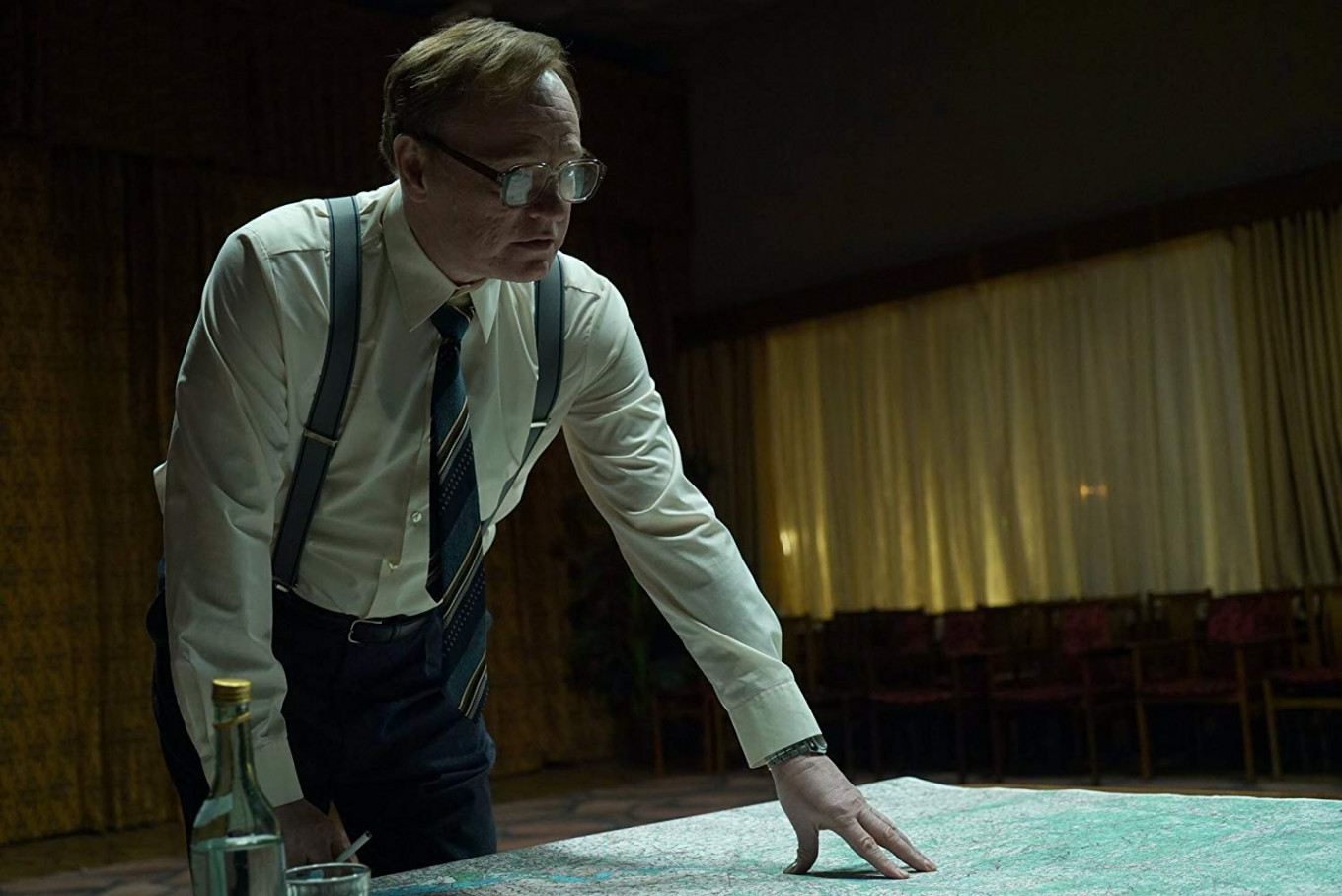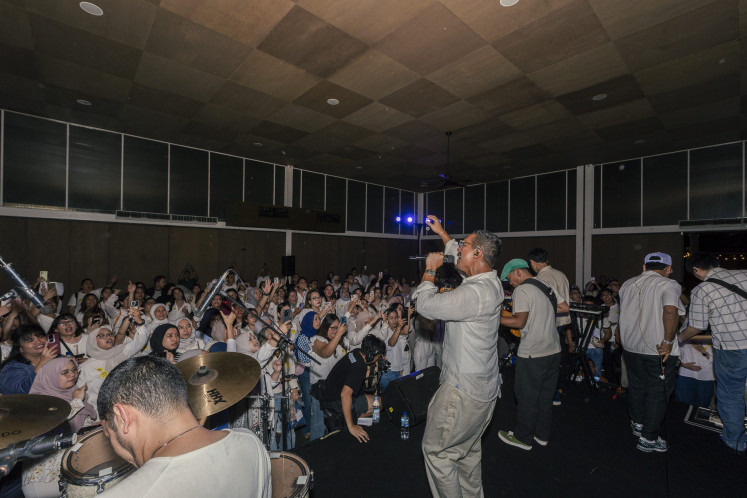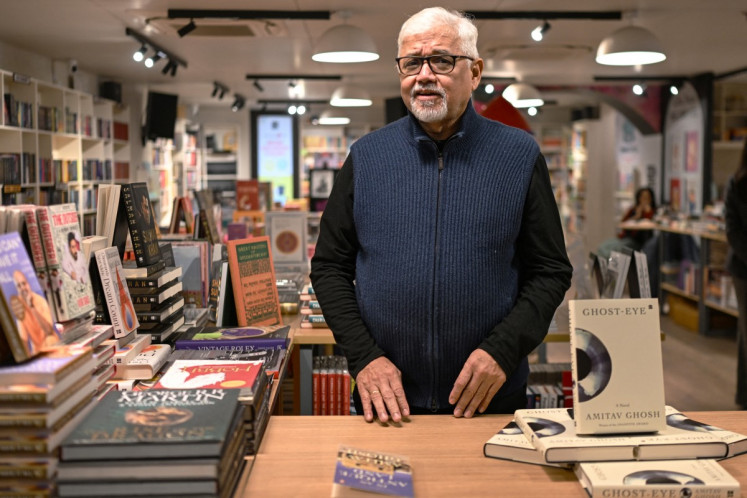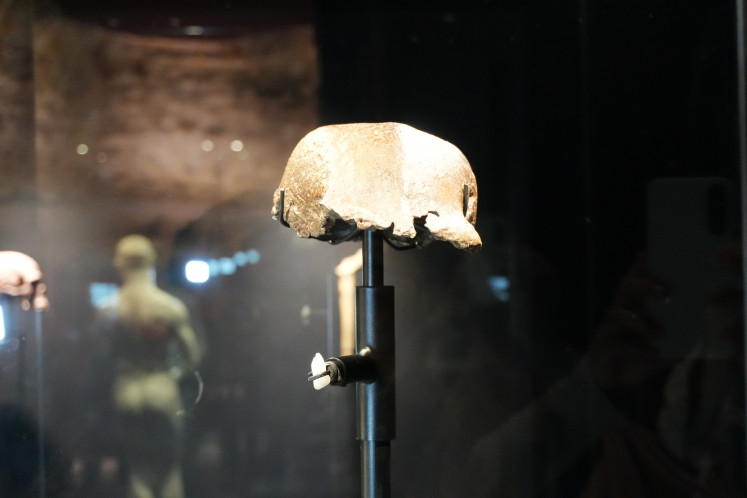Popular Reads
Top Results
Can't find what you're looking for?
View all search resultsPopular Reads
Top Results
Can't find what you're looking for?
View all search results'Chernobyl': Disaster porn of human lies, incompetence
Chernobyl may have the intention to recapture the chronological truth of the cataclysm at first, but in the process, this miniseries becomes a fine study about sanctioned obfuscation and lies in understanding.
Change text size
Gift Premium Articles
to Anyone
L
ies, incompetence and sanctioned loyalty lie at the core of a five-episode miniseries penned by Craig Mazin on the Chernobyl nuclear power plant catastrophe, the biggest human-made disaster in history.
The show starts off like a near-real-time disaster thriller, with the chain of events dissected in an almost scientific way. But as the show progresses, Chernobyl establishes itself as disaster porn that examines human behavior at a deeper level.
The explosion that happened in the Soviet republic of Ukraine in the early morning of April 26, 1986, is part of the first episode. But before it gets to that, Chernobyl conjures up a dark, horror atmosphere surrounding the moral hero of the story, Valery Legasov, played with class and perfection by Jared Harris, who takes his own life after finishing a record about what really went down in this cataclysmic event. It is indeed a very effective method to hammer home the notion that what we're about to see is pure calamity.
Legasov, however, is not the sole hero of the story. There are also deputy minister Boris Shcherbina, who is sent by Soviet Premier Mikhail Gorbachev to accompany Legasov in examining the catastrophe, and a nuclear physicist named Ulyana Khomyuk, who – as is later revealed – is a composite character to represent the many scientists that risked their lives to investigate this tragedy.
At first, Shcherbina is just another incompetent person of power who assumes his way of thinking is the only thing that matters at that moment. There's a clear tension between him and Legasov early on, but as the show progresses and the disaster keeps getting riskier, he starts to open his eyes, realizing that when it comes to this, he has to listen to what the experts are saying. His character is not only vital to represent the real chronology but also to the narrative Craig Mazin has brilliantly crafted. He becomes the heart that beats to display the contradictions that could be mitigated if people in power actually listened to what experts are saying. Shcherbina opens his eyes because he's seen the cost of this tragedy and the lies that come with it. He's changed his well-oiled gear of thinking, so that a tragedy like this won't happen again. There's a moral value brought by his character that feels thoroughly relevant to the way society works today.
We can see in our surrounding and probably in the mirror that a human being is most scared of being viewed as wrong. That's why we keep pushing our agenda, thinking that it has to be true. But there's no way in this life that we, imperfect creatures, know every right thing about everything. There's always going to be a time when we're wrong, and there's no shame in admitting it. Refusing to do so is very dangerous.
The people who will not admit to being wrong are represented vividly by Dyatlov, the chief deputy engineer, who refuses to open his eyes that the core reactor of the plant has exploded and instead keeps dismissing signs that his co-workers are becoming ill of the radiation. His bosses, Viktor Bryukhanov and Nicolai Formin, also refuse to admit that their plant has failed, out of fear of getting blamed by their Communist party superiors. This is where the show becomes highly relevant to what is going on right now, mirroring the kind of incompetence in people of power who choose to keep lying to feel good about themselves.
In its limited runtime, Chernobyl manages to show us the vast scope of the tragedy from the victim's angle. This subplot is converged in the heart-wrenching story of a young pregnant woman, Lyudmilla Ignatenko, whose firefighter husband, Vasily, is one of the first responders tasked with putting the fire out, unknowingly walking into a radioactive death trap. There's also one harrowing moment in the penultimate episode showing a young soldier played by Barry Keoghan tasked with killing all of the animals left in the area so that they won't spread the radiation. These two are just a few examples of the cost caused by this tragedy.
Read also: Chernobyl disaster site now tourist attraction
And it's pretty vital to the show's emotional core and narrative to let us witness that lives are at stake when you keep lying. The thing that is so masterful about Craig Mazin's writing is that it could've easily made the show overly depressing or used as a propaganda tool against nuclear power or Communism in general, but Craig Mazin is far too smart to let the show spiral off that deep end. Instead, he gives the show a more hopeful tone by showcasing the dynamics of the three heroes, Legasov, Shcherbina, and Khomyuk, who are willing to risk their career, family and life to get to the truth of what really happened.
Their struggle to defeat this political buck-passing and blame-game gives us hope that there are still a few people out there who'll fight for the truth. Their number may be small, but what really matters it that we tell the truth, even though it'll hurt, or maybe kill us at some point.
In a world where people try to be comfortable using fake facades, it's our job to start being honest and confront the truth. Who knows, maybe truth operates like lies, that if we tell truth and only the truth, people will start piling it up, because they will adapt to the truth no matter how discomforting it is. If lies can be sustained, I believe the truth can too.
At one point, Shcherbina is asked by a coal miner whether he and his co-workers who work underneath the radioactively contaminated plant with limited safety outfits will be taken care of once this is over or not, and he answers reluctantly in a breaking voice, "I don't know". It's difficult and even heart-breaking to hear, but at least he's being honest.
Chernobyl may have the intention to recapture the chronological truth of the cataclysm at first, but in the process, this miniseries becomes a fine and deep study about sanctioned obfuscation and lies. It's definitely a miniseries that will be remembered for a very long time, and I hope, it will be the art that will open so many doors about the importance of telling the truth and being honest. (kes)
***
Reyzando Nawara is a film and TV series lover and self-proclaimed reviewer, who loves to look at the humane elements of cinema. He is very enthusiastic when it comes to micro-budget indie movies, especially the ones that feel like a character study. Would love to talk all day about movies and TV series. Go meet him on his Instagram account @reyzview.











